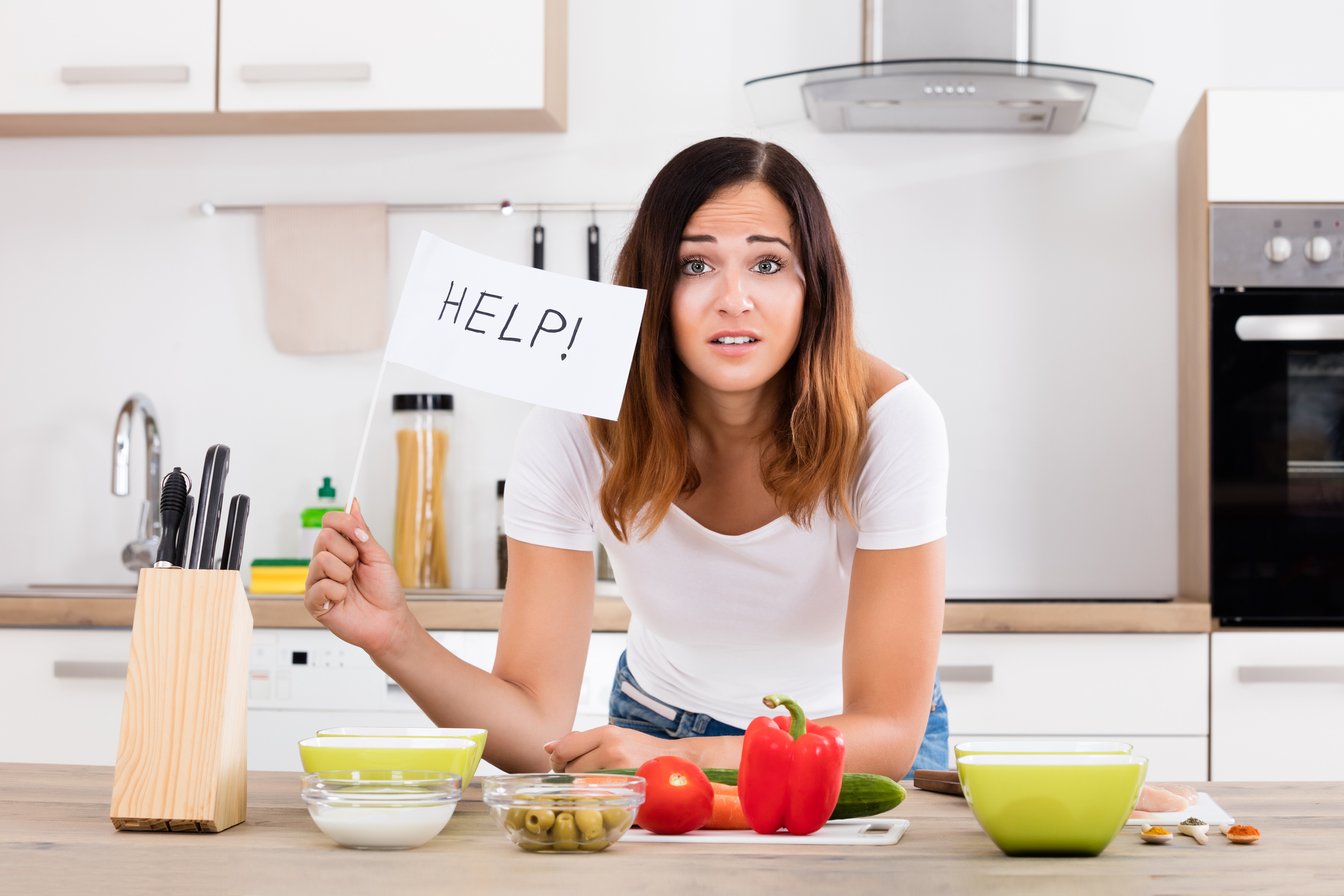A Note for Our Readers
I no longer offer 1:1 nutrition or functional health services, and I’m not accepting new clients for digestive or hormone-related support. This blog remains published as a helpful resource for women navigating these health challenges — especially those looking for clarity around their symptoms and well-being.
Today, my work is dedicated to helping Health Coaches, Practitioners, and Wellness Entrepreneurs grow profitable, sustainable businesses through private practice coaching and mentorship.
If you’re a wellness professional who’s ready to grow a thriving, values-aligned business without burning out, click here to learn more about my coaching programs.
And if you’re ready to build the kind of online health business that nourishes you financially, emotionally, and energetically, check out my signature program, the Nourished Business Accelerator™.
Thank you for being here and I wish you the best on your journey.
This is a guest post written by Amy Hollenkamp, a dietetics student and blogger at The SIBO Diaries. Amy started her blog to share her experiences with SIBO and to lead a research based discussion about various treatment options, including the SIBO diet. The post was originally published here.
In the Paleo world, and especially in the gut health community, there is this prevalent mentality that the more foods you restrict the better.
While it is undeniable that switching to a whole foods diet can be a powerful tool for healing from gut issues like SIBO, it can be very easy to take the restrictions too far.
I learned the hard way during my healing journey with SIBO that the more I restricted and pursued a perfect SIBO diet, the worse my health became!
Not only did I feel terrible, but I started to develop an unhealthy fear of all the foods I wasn’t supposed to eat!
If you find yourself mentally and physically exhausted from a restrictive SIBO diet, this blog is for you!
In this article, I will share how the restrictions consumed my life and led to disordered eating.
More importantly, I will provide eight tips to help you break free from food fears and overly restrictive diets.
Let’s dive in!

AMY’S EXPERIENCE WITH THE SIBO DIET
I remember feeling so overwhelmed when my functional medicine practitioner emailed me this infamous infographic of the SIBO diet.
The dreaded columns of “yes” and “no” foods still haunt my dreams.
But, I was desperate to feel better….to feel like myself again. My functional medicine practitioner was adamant that starving the bacteria of fermentable fibers was not an option, but a necessity. I felt as though if I didn’t stick to this SIBO diet list 100% I was going to fail.
I saw so many other people in the SIBO Facebook group struggling to get better and I mistakenly assumed that they must not be following a strict enough SIBO diet. They must be feeding the beast. There was no way in hell I was going to feed the beast.
I was religious about eating low FODMAP/SCD foods. I cut out foods that I never had issues with because they had fermentable fibers. Onions and brussel sprouts were the enemy!
Every meal felt like a psychological battle in this war against SIBO.
I obsessed over every bite of food that entered my body.
Being around food at parties and restaurants was too difficult, so I avoided social gatherings as much as possible while I was on this diet. When I would go to parties, I felt so stressed and deprived.
Every ounce of will power was used to avoid an all out binge fest on pie or pizza.
Plus, I always had to answer the most annoying questions about my diet every time I would see my extended family or friends. So what can you eat!? When are you going to be able to eat normal again? Just a little bit won’t hurt, right?
It’s weird how much of our human connection centers around food. We use food as a vehicle to show affection and to share memories. SIBO can feel especially isolating when you can’t share in these food centered social experiences.

ACCIDENTAL UNDEREATING ON THE SIBO DIET
Another problem I ran into was unintentional under-eating. Eating the same 10-15 foods can grow incredibly stale. I found myself losing all interest in food. Nothing “SIBO friendly” sounded appetizing, so I found myself not eating a whole lot of food. Maintaining my weight was a constant struggle and I felt like a zombie.
The stress of following the perfect SIBO diet wreaked havoc on my hormones too. My cortisol and thyroid hormones were all kinds of crazy. Not to mention my absent menstrual cycle.
After white knuckling it through 3 months of this super strict SIBO diet, my health was continuing to spiral out of control. But, I failed to listen to my body’s cues that this diet was not right for me.
Instead, I listened to my foggy brain that was deleteriously focused on completing operation “starve bacteria” at all costs.
It wasn’t until I switched practitioners was I able to gradual loosen the reigns on my SIBO diet. When I came to her, I was clearly malnourished. She smartly advised me to increase my food intake and to broaden my diet.
Through working with her, I was able to come to my senses. By trying to starve the bacteria, I was starving myself.
It wasn’t a fast process to unwind some of the disordered eating patterns and fear I had developed while on this restrictive diet, but eventually I was able to eat restricted foods without the fear that my gut would explode!
Plus, my body felt better when I was providing it with the nourishment it needed to thrive.
Would you like to save this post?
Your email address is 100% safe and will never be sent spam.
These overly restrictive diets leave SIBO sufferers vulnerable to orthorexia.
Get my free eBook “5 Steps To A Fear Free Diet” when you join my mailing list!
HOW A SIBO DIET CAN LEAD TO ORTHOREXIA
For those unfamiliar with orthorexia, here is a good description from the National Eating Disorder Association:
Those who have an “unhealthy obsession” with otherwise healthy eating may be suffering from “orthorexia nervosa,” a term which literally means “fixation on righteous eating.”
Orthorexia starts out as an innocent attempt to eat more healthfully, but orthorexics become fixated on food quality and purity. They become consumed with what and how much to eat, and how to deal with “slip-ups.”
Food choices become so restrictive, in both variety and calories, that health suffers – an ironic twist for a person so completely dedicated to healthy eating.
Eventually, the obsession with healthy eating can crowd out other activities and interests, impair relationships, and become physically dangerous.
SIBO diets should be viewed as a tool to manage symptoms and allow the sufferer to optimize their daily life. You should be able to accomplish more throughout the day.
But, so often, SIBO diets seem to do the exact opposite. They consume our lives leaving the strict dieter more worn down and isolated.
Even after you clear the SIBO, the fear of food tends to linger and prevent experimentation. This continual stress and fear around diet can be damaging to the SIBO recovery process.

HOW DIETARY STRESS AFFECTS SIBO RECOVERY
When we are chronically stressed, cortisol (our stress hormone) will become chronically elevated. We evolved this “fight or flight” stress response to help us escape acute stressors such as predatory attack. Cortisol is not supposed to be chronically activated.
Our stress hormones activate our sympathetic nervous system, which shuts down digestion. The stress response reduces blood flow, motility and immunity in the gut.
Chronic stress can compromise the intestinal barrier making you susceptible to leaky gut, which will lead to systemic inflammation.
The stress response can also down regulate the activation of thyroid hormones. Motility will be further repressed if your thyroid hormones are not activated.
Orthorexia will promote this stress response and wreck havoc on not only your gut, but your whole body! It can be quite challenging to work yourself out of orthorexic eating patterns, but I believe it is a crucial step in the healing process.
That is not to say that you should eat what ever you want if you have SIBO. I believe eating a whole foods, nutrient-dense diet is important for healing.
I am rather trying to raise awareness about two potential problems that I see with the current SIBO diet paradigm. These are just my opinions, so take it or leave it.
First, these SIBO diets are unnecessarily restrictive. They tend to restrict foods that you may be perfectly okay eating.
Second, there seems to be too much weight on the impact of the diet on treatment outcomes. Adjusting your diet should always be viewed as just one strategy in a multifaceted approach to treat SIBO. (Not the entire treatment!)

WHAT I LEARNED FROM MY SIBO DIET EXPERIENCE
Here is a list of personal insights that I gained through my restrictive dieting and SIBO experience:
1. There is no perfect SIBO diet
Everyone has different needs and sensitivities. I find it interesting that the individuals with the strictest diets in the SIBO sphere tend to be the sickest. By religiously focusing on diet perfection, you could become more stressed and isolated, which is not conducive to healing.
2. Don’t be afraid to experiment
The best diet is one that is customized to your individual needs, not one based off of an arbitrary list of yes and no foods. Experimenting seems scary when you are used to following a strict SIBO diet. But, experimenting allows you to truly hone in on how your body is responding to foods. Experimenting also helps you learn to trust your body. If you try a new food that you react to, don’t fret! Just steer clear of it for a little while.
3. Diet changes are a symptom management tool
Like I have harped on in all my posts, you must find and treat the root to cure SIBO. Eliminating all fermentable fibers will not cure the underlying root cause.
I would argue that long term low fermentable fiber diets may even exacerbate SIBO by starving the bacteria in the large intestine. You should eliminate foods that you react severely to, but overly restricting could be damaging to the health of your GI tract.
4. Don’t be afraid to add foods back in after restricting them
It can be challenging to add food back in when you know you reacted to it in the past. Starting slow with a couple bites and seeing how you respond is a good way for your body (and mind) to re-acclamate to the food.
5. Give yourself a break
Nobody is perfect and trying to be perfect is exhausting. Don’t beat yourself up about eating something you shouldn’t have. Sometimes having a treat or a cheat meal is necessary for your sanity.
6. Be grateful for the foods you can eat
At the beginning of treatment when you might have a higher number of foods that you are reacting too, it is very easy to feel frustrated and deprived. But, I think it is important to remind yourself that these restrictions are just temporary!
In the mean time, trying to shift into a positive mindset by giving thanks at each meal for the food you can eat can help combat the stress and negativity that come with the restrictions.
Recipes can also help create some fun and exciting ways to enjoy your meals during more restrictive times of treatment.
7. Find a SIBO diet you can maintain
Focusing on finding a diet that you can comfortably maintain while reducing symptoms is going to reduce the anxiety around food and increase the chances of long term success.
8. Work with someone!
If you find yourself struggling with the constant fear and anxiety about your SIBO diet, I think it may be a good idea to work with a professional that has experience with disordered eating patterns.
YOUR SIBO DIET: THE BOTTOM LINE
If your restrictive SIBO diet is disrupting your life and making you sicker, don’t be afraid to broaden your diet to discover what works best for you!
If you liked this blog, please like my Facebook page, so that you don’t miss any posts!
Now I’m going to go eat some non-dairy ice cream! Until next time!
This post may contain affiliate links. If you click on a link and make a purchase, I may receive a small commission.

+ show Comments
- Hide Comments
add a comment